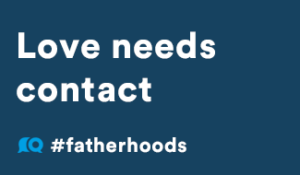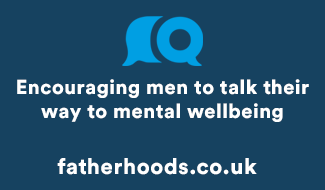Child and adolescent mental health services (CAMHS for short) are specilaist multidisciplinary services, funded by the NHS, to assess and treat children with mental illnesses, emotional and behavioural disorders. You will need a referral from a GP to been seen at CAMHS, who will work with the whole family to support a young person’s mental health.
This could, for example, include both parents coming along to assessment and to treatment appointments, depending on the child’s age and what level of involvement they want.
CAMHS usually see children up to the age of 18, but in some areas, they are only funded to see young people to the age of 16.
Can CAMHS help all families during parental separation?
No. CAMHS are there for those with mental illnesses. In an average class of 15-year-old pupils, 3 are statistically likely to have have a mental illness, but 10 are likely to have experienced their parents separating.
What sorts of conditions can CAMHS help with?
- Anxious away from care givers (Separation anxiety)
- Anxious in social situations (Social anxiety/phobia)
- General anxiety (generalised anxiety)
- Compelled to do or think things (OCD)
- Panics (Panic Disorder)
- Avoids going out (Agoraphobia)
- Avoids specific things (Specific phobia)
- Repetitive problematic behaviours (Habit problems)
- Depression/low mood
- Self-harm
- Extremes of mood (Bipolar disorder)
- Delusional beliefs and hallucinations (Psychosis)
- Drug and alcohol difficulties (Substance abuse)
- Difficulties sitting still, listening or concentrating (possible ADHD/Hyperactivity)
- Behavioural difficulties
- Poses risks to other people
- Doesn’t get to the toilet in time, or wets at night (Elimination problems)
- Experienced abuse from caregiver
- Disturbed by traumatic event (PTSD)
- Eating issues (Anorexia/Bulimia)
- Problems in attachment to parent/carer (Attachment problems)
- Peer relationship difficulties
- Persistent difficulties managing relationships with others (includes emerging personality disorder)
- Does not speak (selective mutism)
- Gender identity disorder
- Unexplained physical symptoms
- Unexplained developmental difficulties
- Self-care issues (including neglecting to take insulin for diabetes)
- Adjustment to health issues
Who works at CAMHS?
Child and Adolescent Psychiatrists
Psychiatry is the specialty of medicine dealing with mental illnesses. A child and adolescent psychiatrist is a doctor, with a degree in medicine and several years of postgraduate training in diagnosing and treating mental, emotional and behavioural disorders. Psychiatrists carry out assessments, take a clinical history, conduct semi structured interviews, undertake physical examinations and blood tests and may request brain imaging. Treatments include drug therapies and psychotherapies, individual, family or group. They work as part of multidisciplinary teams in CAMHS.
Letters to look for:
MBBS (medical degree )
MD (medical degree in some countries, confusingly it’s a postgraduate research degree in others)
MRCPsych, FRCPsych (member or fellow of the Royal College of Psychiatrists)
MMed Psych FF Psych FC Psych (alternatives to MRCPsych in some countries)
FRANZCP (Fellow of the Royal Australian and New Zealand College of Psychiatrists)
Psychiatric Nurses
These are qualified nurses with specialist training, skills and knowledge in treating mental, emotional and behavioural disorders. As well as prescribing medication for some conditions including ADHD, many nurses are trained in one or more talking treatments.
Letters to look for:
RMN (registered mental nurse)
Psychotherapist
Psychotherapists use playing, art and talking to assess symptoms, explore feelings and understand relationships. By helping children and young people understand the roots of their distress, they guide them towards recovery. Meetings are usually weekly. Unfortunately, anyone can call themselves a psychotherapist, but good ones are members of overseeing bodies like the United Kingdom Council for Psychotherapy (UKCP) and the British Association of Counselling and Psychotherapy (BACP).
Clinical Psychologist
Clinical psychologists have an honours degree in psychology and further clinical doctorate. Their job usually involves cognitive testing and many provide cognitive behaviour therapy, a therapy based on the belief that damaging behaviours can be unlearnt and changing unhelpful thoughts. Psychologists cannot prescribe drugs.
Letters to look for:
BSc
PhD
Social Worker
Many social workers working in CAMHS are trained therapists, often in family therapy, where multiple members of a family are seen together. Social workers can also help with issues arising from coping with mental illness or hospitalisation.
Letters to look for:
DipSW ( Diploma in Social Work)
CQSW (Certificate of Qualification in Social Work)
NQSW (National Qualification in Social Work)
BSW (Bachelor of Social Work)
Occupational therapist
These trained professionals use work and leisure activities to develop or regain physical and life skills. Many have training in talking therapies as well.
Other therapists include Art Therapists, Drama Therapists, Education Therapists and Music Therapists.
What happens at CAMHS?
Your first session should be an assessment, often with two or more people from the CAMHS team working together. Children and young people have an opportunity to speak without their parents present, and parents similarly are offered an opportunity to do this.
At the end of your assessment, you can expect answers to these questions:
Is there something the matter?
Is there a name for that, or a formal diagnosis?
How many times do you think we will need to see you?
How long will appointments be?
What type of treatment do you offer?
How long does treatment take?
Am we able to contact you between appointments and how can we get in touch?
What do we do in an emergency?
Although there have been recent announcements about increased funding of mental health, child and adolescent mental health services have had severe funding cuts in the past decade. During this time, there has also been a steep increase in the numbers of young people with serious mental illnesses and a national shortage of CAMHS psychiatrists. These combined pressures have led to much higher thresholds of severity before a young person is seen in many parts of the country. There are simply not enough resources to meet need.
More families are using health insurance or savings to seek private assessments, which can be a faster way to get a diagnosis and treatment plan. There are other private services who can help children after divorce, who do not meet thresholds for CAMHS, for example, the Institute of Family Therapy offer family therapy to separating couples and their children. If CAMHS are not able to accept a referral, ask for a list of who provides relevant services locally.
Posted on February 11, 2019














